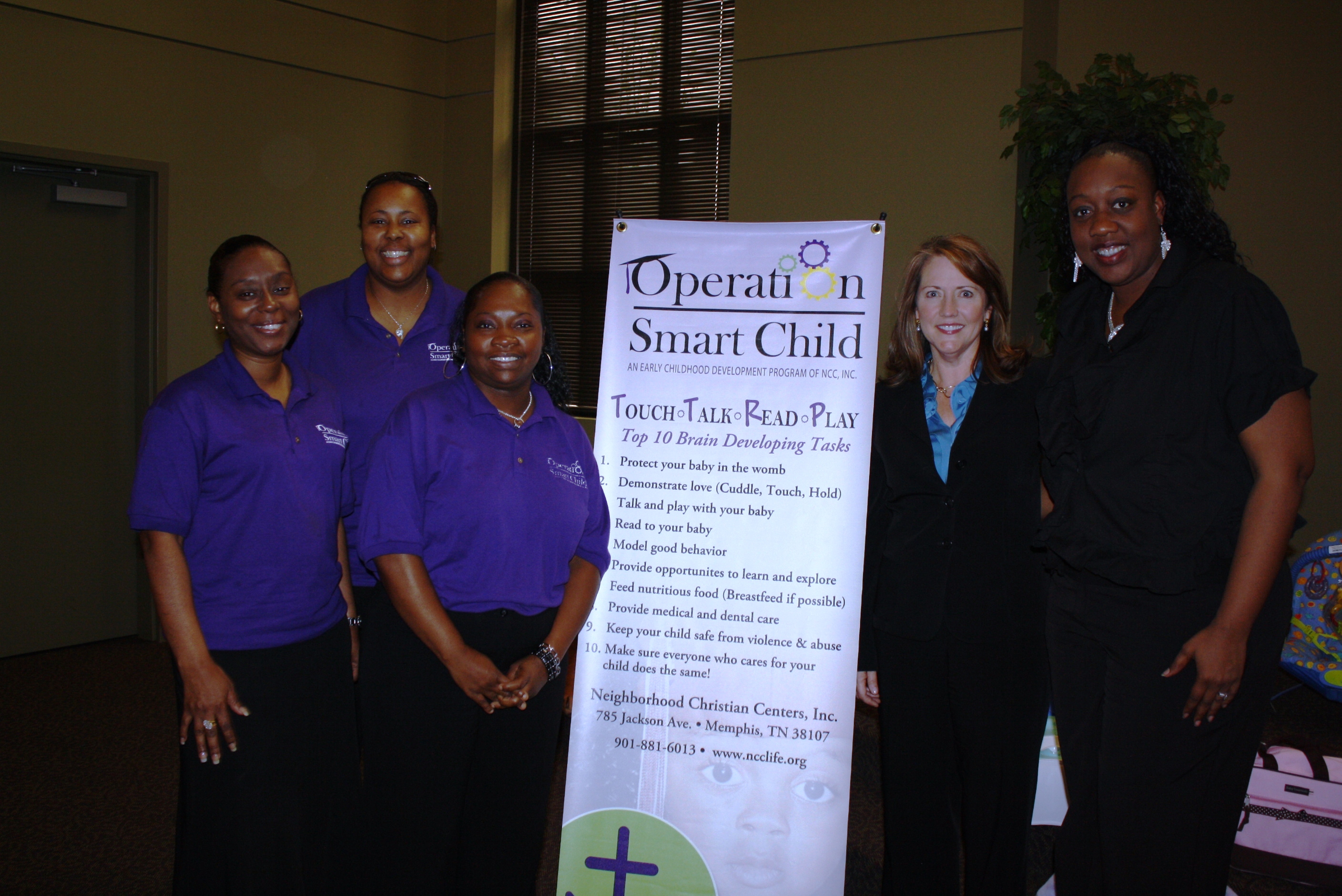
Ten years ago, a federal report listed Memphis as the city with the highest rate of infant mortality in the country. In certain neighborhoods, the quantity of infant deaths paralleled infant death rates in Third World countries. Those statistics underscore the issue of health disparities in vulnerable and hard-to-reach communities in the Memphis community; however, that health crisis is also providing opportunities for innovative partnerships with faith, community, health, and government leaders in the state of Tennessee.
One promising example is the First Ladies for Healthy Babies Network, which is an initiative through the Neighborhood Christian Center. Within the African American community, if the pastor of the church is male, his wife is often given the term “First Lady” as a gesture of honor and respect. Understanding the integral role that faith leaders play as trusted messengers in their communities, the First Ladies for Healthy Babies Network engages First Ladies and other female leaders in the congregation to mentor young women and to actively refer moms of children 0 – 3 to NCC’s early childhood and parent/caregiver program.
In 2009, NCC formally launched Operation Smart Child (OSC), an evidence based program designed in partnership with the Urban Child Institute, to improve brain and social skills development in children from conception to four. The goal of this joint effort is to drive the behavioral change of caregivers of children 0-4 in targeted neighborhoods by educating them on early childhood brain development. Translating the science of nurturing the brain in early childhood into usable touch points for parents and caregivers is a critical first step to prepare a child for a lifetime of learning. Along with the” First Ladies for Healthy Babies” mentoring component, FLHB is a direct support network for Memphis’ Operation Smart Child Program.
A part of the mission is to help support young mothers during the first year of their babies’ lives, providing critical information on maternal and child health. For example, parents should be aware that one way to reduce sleep-related infant deaths is to place babies on their backs instead of on their stomachs and sides. Breastfeeding and good prenatal care also play a critical role in reducing SIDS.
Ephie Johnson, the President and CEO of the Neighborhood Christian Center said, “The church continues to be a place of refuge and support for our country’s and community’s neighbors in need. The Neighborhood Christian Centers, Inc. has recognized this fact and that is why we saw it important to ‘birth’ the First Ladies for Healthy Babies Network.”
Johnson adds that she envisions linking First Ladies and Leading Ladies together across the country with one collective aim: to give all the nation’s children a healthy start.
Johnson’s work has already garnered the support of one prominent First Lady. Mrs. Crissy Haslam, the First Lady of Tennessee, is partnering with First Ladies for Healthy Babies to encourage local faith-based community leaders to help Tennessee families. She and her staff view the network as a powerful asset in creating awareness for important local issues, such as infant mortality, early childhood development, and parental involvement in education. The Tennessee First Lady’s Office has held events with First Ladies in Memphis and Nashville, and they are working to expand the network across the state.
By engaging critical segments of the community like health, faith, and community leaders, initiatives like these have great potential to narrow health disparities and gaps in hard to reach communities. Dr. Kimberlee Wyche-Etheridge, who serves as the Director of the Bureau of Family, Youth and Infant Health in the Metro Nashville Davidson County Public Health Department said:
“The health and well-being of our most vulnerable citizens, our babies, defines us as a community. It speaks to our collective conscience and morality. When one of God's children dies before his or her purpose is fulfilled we all grieve the loss, either immediately like we see with parents or loved ones or later when there is a piece of our individual selves that is missing due to that baby not being in the world. When we see shameful disparities across our state with African American babies dying at rates of 2 to 2.5 times higher we should all be called to action. Inequities of power, privilege, and income have created a canary in the toxic coal mine scenario. If not ours, then whose responsibility is it to level the playing field and make the first move toward sustainable and meaningful change?”
Also in Nashville, the Martha O’Bryan Center, a faith-based human services organization (www.marthaobryan.org), has built a community-based physician supported initiative, Tied Together, which is having tremendous results lowering infant mortality and child removals among families living in poverty. This evidence based program has tracked results through Vanderbilt University for three years and has seen, not just person-centered change but also community-centered change led by the 270 graduate families of Tied Together. As a result of First Ladies for Healthy Babies event in Nashville, in the coming year, the Tied Together staff will bring this critical information to area churches and church leaders.
First Ladies for Healthy Babies serves as a great example of the tremendous contribution that faith leaders provide with public health outreach.
Acacia Bamberg Salatti is the Deputy Director of the Center for Faith-based and Neighborhood Partnerships (The Partnership Center) at the U.S. Department of Health and Human Services.


